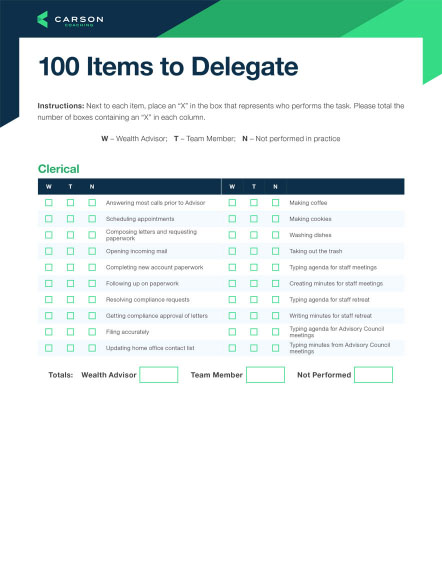Working in the financial services industry was supposed to be a pit stop for me.
I can say with 100% certainty that I wouldn’t be where I am today – or even in this industry – without mentoring.
My journey is a bit unique in that mentoring itself brought me to the profession. But it is not unique in that mentoring has kept me here this long (and I’m not planning on going anywhere anytime soon!).
In this article, I’m going to share my story of how mentorship brought me to the profession and offer ways to make the most of your mentoring relationships.
The truth is that many people in this industry want to help others rise up. Whether you are just getting into the industry or you already have a bit of experience, mentoring can get you where you want to go faster and with more confidence – if you let it.
How Mentoring Brought Me to the Profession
My journey to financial services via mentorship started in college, when I served as a mentor to a young girl. Later, I found myself as an employee with that same nationally known youth mentor organization I mentored through in college. During that time, I continued to volunteer, mentoring another girl until she moved away with her family. And I still continue to serve – I’ve had the pleasure of mentoring a woman from her teenage years to adulthood.
All that experience came in handy when it was time for a career change and I applied for a position at a broker-dealer to help run an advisor-to-advisor mentor program. I got the job and it was a perfect fit. Not only that, even though I didn’t know it at the time, it was the choice that put me on the correct path to get me to a destination I may have never known existed.
It was also during this time that I was introduced to two of my most influential mentors. First, there was Travis, who took a chance on hiring someone with no industry experience. He noticed a potential in me and gave me the opportunities to learn and shine whenever possible. His patience and kindness with me helped me shift from being overwhelmed to interested in this complex industry.
Read more: Tips for Mastering Becoming an Influential Leader
While working with Travis, I got another opportunity to move to a different team and was introduced to Dawn, who opened my eyes to the possibilities of what my journey could look like. I vividly remember wanting to be just like her. Instead of just fueling up enough to move on to a new profession, she helped me discover my future within the financial services industry. She encouraged me to expand my self-limiting beliefs, to grow professionally at every turn I could, and she guided me when I hit potholes along the way or temporarily lost confidence in the journey. Knowing that I still have both mentors in my life helps keep me excited and confident about the decades ahead I have down this path.
Getting the Journey Started
Whether you meet a mentor by participating in a formal mentor program or you’ve simply connected with someone in your existing network, know this – the burden of this relationship is on you. It’s likely that your mentor is a successful businessperson, so getting time on their calendar and keeping those meetings is essential. Here are some ways to get started:
- Ask for opportunities to connect in-person, at industry events or virtually.
- When you do have time with them, be ready to share some of your current challenges and goals.
- Ask if your mentor would be willing to meet on a consistent, recurring basis. Consistency provides a solid foundation, and it is much easier to not let things slip off the schedule when you already have something set.
- Be prepared for the meeting. Set and send an agenda and specific questions for your mentor in advance.
- Make at least one commitment for action at each meeting. Another benefit of meeting consistently is that you have a regular “check-in” about your progress, which is more likely to mean you will complete these action items you set.
Be Open to a New Route
Depending on how long you’ve been in the business, or your training coming into the business, you might already be a little set in your ways. One of the main benefits of working with a mentor is that it will provide you the opportunity to learn about new ideas and approaches.
While having a similar foundation or theory of the business might be helpful, the idea is that you come out of this relationship having more knowledge and an understanding of new directions. So, consider this advice: If your first reaction to an idea or suggestion is “No” or “This won’t work for my situation,” try instead to think how the suggestion might be adapted so it would be able to work for you.
Your mentor knows where some of the big potholes are on this road. Why? Because they have hit them! Start by taking small steps and just experimenting with their directions.
You May Need to Pop the Hood
Offering up a little vulnerability will allow you to have a much deeper and more meaningful relationship with your mentor – and yourself. The entire basis of a mentor relationship is built on the mentor helping you navigate your situation based on their own mistakes and successes.
Throughout your mentor’s journey, they’ve accumulated wisdom about themselves, their obstacles and their strengths. To understand what’s holding you back, you may need to ask your mentor about major turning points or ahas in their journey. Ask for feedback, and know that while having an outside perspective is very meaningful, it also isn’t enough. You can’t expect that your mentor will be able to pinpoint all the areas in your professional life that may need a little tuneup.
Read more: Gratitude as a Foundation for Creating a More Equitable and Inclusive Business
Also, ask your mentor about their most meaningful personal and professional development opportunities so you can get inspiration for how to fuel yourself with additional knowledge and resources. Mentors can also help introduce you to other professionals in the field, too, helping you make additional connections along the way.
Don’t Stop When the Road Gets Bumpy
The saying “Nothing worth having comes easy” applies here. It’s not easy to get vulnerable and uncomfortable with each other, but it’s a critical element to mentorship success. I’ve seen many mentor relationships fail because of an unwillingness to be a little uncomfortable.
And sometimes, mentors and mentees might not see eye to eye, but that doesn’t necessarily mean it’s time to take a new path. In fact, there’s probably a lesson in that situation – perhaps for both of you. If the relationship was working before and doesn’t seem to be meaningful now, what has changed? What is in your control? Having a direct and open conversation with your mentor might be all that it takes to get you back on track.
Mentors Believe in You Until You Believe in Yourself
Having a mentor isn’t a sign that you’re not competent or qualified – it’s a sign that you understand the value they can bring from their years of experience. It also means that in times where you might not have the confidence, they’ll hold that space for you until you do, which could keep you from giving up too soon.
As I look back at all the amazing people who have served, and still serve, as my mentors, I realized they all believed in me well before I could believe in myself, which helped steer me in the right direction. It slowly helped me navigate and discover my own confidence and willingness to seek out new opportunities.
The industry is full of amazing professionals who are willing to give back. No matter if your goal is to run a multibillion-dollar RIA or have a specialty practice with a niche of working with divorcees, there’s someone else out there who has been down that road.
You owe it to yourself and your clients to be the very best version of you, so why not consider a mentor? What do you have to lose? And one final piece of advice – once you get there, be sure to pay it forward.


